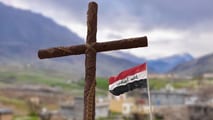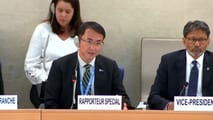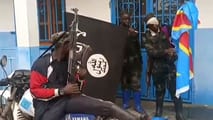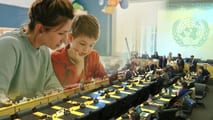Bhutan in the hot seat
By Gyalsten K Dorji
Human Rights Review 14 November, 2009 - When Bhutan presents its national report for the universal periodic review (UPR) on the human rights (HR) situation in the country on December 4, in Geneva, the country’s delegation will be commended on the successes and also have to provide clarity on, among others, some largely inaccurate claims and allegations.In addition to the national report, two more reports will serve as the bases of Bhutan’s review. These two reports, containing information from other stakeholders, such as independent human right (HR) experts and groups, HR treaty bodies, and non-governmental organisations (NGOs), will raise issues on, for instance, conflicting articles in the Bhutanese constitution, the status of women and children, citizenship, minority rights, religious and media freedom, and on illegal immigration.
On the constitutional and legislative framework, the European centre for law and justice (ECLJ) notes that, although article 7 guarantees citizens’ HR, the constitution “also provides that the state may restrict any of these rights to promote several national aspirations, including, inter alia, the ‘unity and integrity of Bhutan,’ ‘the well being of the nation’.”
It is also pointed out that the constitution takes precedence over HR instruments. While article 9.24 undertakes the state to foster respect for international law and treaty obligations, article 10.25 subjects these laws and obligations to article 10.1, which states that the provisions of any laws, if inconsistent with the constitution “shall be null and void,” it says.
NGO Global human rights defense (GHRD) raises concerns on the existence of only two political parties. It says only two political parties “with broadly similar policies were allowed to register and stand for election.”
On the promotion and protection of HR on the ground, GHRD states that women’s independence and representation in government is impeded, because of reduced participation in education. It also claims that the marriage age set at 15 increases their dependent position in Bhutanese society.
An NGO that supports the people in the camps in Nepal claims that citizenship laws and the no objection (NOC) and security clearance (SCC) certificates are being used as a tool to deny services such as education, health, work, training, and to travel freely and own property. Germany based NGO society for threatened peoples (STP) claims that independent and critical journalists face “intimidation, arrest, and torture.”
NGO Global initiative to end all corporal punishment (GIEACPC) notes that corporal punishment is still lawful in Bhutanese homes and not prohibited in penal institutions as a disciplinary measure. The NGO points out that the government has committed itself to prohibit corporal punishment in all settings at a July 2006 South Asia forum, and recommends the government to urgently introduce legislation. On freedom of religion or belief, STP and ECLJ alleges that any other religious activity, besides Buddhism, “may be prosecuted in the name of an interdiction of religious conversion” but also states that Bhutan has recently made efforts to demonstrate a “lack of hostility,” crediting this increasing tolerance to the recently adopted Bhutanese constitution.
On illegal immigration, STP notes that, although Bhutan has agreed to accept a limited number of verified genuine citizens from the camps in Nepal, this has not happened.
Bhutan’s delegation led by co-leaders, former works and human settlement minister Lyonpo Kinzang Dorji and education minister Lyonpo Thakur Powdyel, will address these issues when Bhutan is reviewed next month.
The 12-member delegation will also comprise officials from the foreign affairs and education ministries, the attorney general’s office, national commission on women and children, the gross national happiness commission, and the permanent Bhutanese mission to the UN in Geneva.









